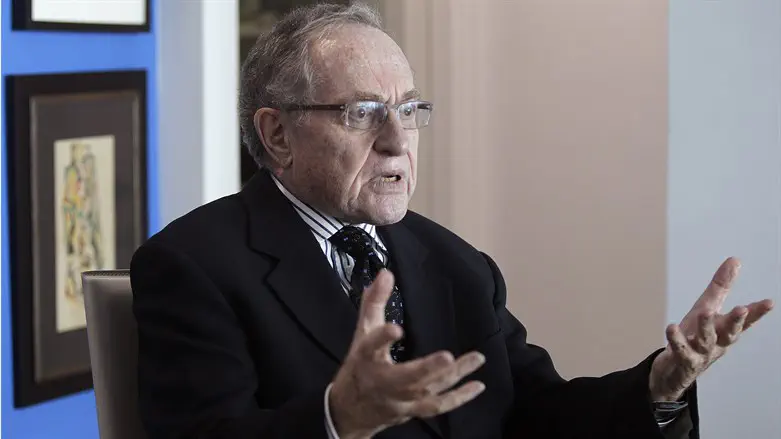
The Harvard Crimson’s recent endorsement of the Boycott, Divestment, Sanctions movement has attracted far more wide-ranging attention than a typical student paper’s editorial page, as faculty and alumni of the Ivy League institution have lined up to denounce the student paper’s op-ed and condemn the shift in Israel discussion on college campuses.
In an open letter, more than 100 Harvard faculty members objected to the paper endorsing an academic and financial boycott of the state of Israel, including the school’s former president Larry Summers; prominent psychologist and author Steven Pinker; endowed law professor Gabriella Blum; former Harvard Medical School dean Jeffrey Flier; and emeritus law professor and longtime pro-Israel advocate Alan Dershowitz.
“We believe that many well-meaning people with no hate in their hearts, including those at Harvard, gravitate to this movement believing that it offers a means for advancing Palestinian rights and peace in the Middle East,” the letter reads. “But the reality is that BDS merely coarsens the discourse on campus and contributes to antisemitism.”
The letter was organized by the Academic Engagement Network, a pro-Israel campus advocacy group.
Summers, a former U.S. treasury secretary, told the Jewish Telegraphic Agency that he signed the open letter in part “to reassure Jewish students on our campus that they are not in a hostile environment,” and “to reassure the wider world that the student newspaper did not speak for the broader university.”
The public should care about the Crimson’s op-ed, he said, because “it’s a widely read student newspaper that has a significant impact on the tone on campus.” He called the editorial antisemitic in a New York Sun op-ed, and said he hopes the paper will withdraw it.
In addition, Anti-Defamation League CEO Jonathan Greenblatt, who recently equated anti-Zionism with antisemitism in a controversial speech, and many Harvard alumni including Texas Republican Sen. Ted Cruz objected to the op-ed. In a tweet, Cruz compared the editorial to Harvard’s quotas on admitting Jewish students in the early 20th century.
When asked by a professor about the editorial as an example of “the eruption of antisemitism on campus,” Harvard President Lawrence Bacow, who is Jewish, said the paper is “entitled to publish what they wish and to share their views as they may.” But he added that suggestions of boycotting groups over policy disagreements are “antiethical to what we stand for as a university,” the Crimson reported.
The faculty letter is devoted to laying out an opposition to the BDS movement, a defense of Zionism and a condemnation of Harvard’s Palestine Solidarity Committee, whose “Wall of Resistance” art installation on Harvard Yard had inspired the Crimson’s editorial. The faculty contend that the installation had the effect of “creating spaces on campus where Jewish and Zionist students are targeted and made to feel unwelcome.”
The faculty also called the students’ decision to publish their editorial the day after Yom HaShoah, Holocaust Remembrance Day, “thoughtless.”
A separate letter, signed by multiple generations of Crimson alumni, expressed “dismay” at the paper’s editorial, along with messages of support for Harvard’s Jewish students.
The Crimson had broken with the paper’s long-held editorial stance by endorsing BDS, which its editors compared favorably with anti-Apartheid tactics while stating that its aims were not antisemitic. Jewish groups at Harvard, including Harvard Hillel, strongly objected to the editorial.
Harvard Hillel student president Natalie Kahn, who is also a news editor at the Crimson and had led protests against the “Wall of Resistance,” wrote her own op-ed in which she said the editorial “is part of a larger trend of singling out Jews, conveniently neglecting our half of the story — and by extension our right to self-determination — while claiming to ‘oppose antisemitism.’”
The Harvard dust-up is the latest example of academic battles over Israel boycotts. In March, the Middle East Studies Association, an academic organization of Middle East and Israel scholars from around the world, also voted to endorse the BDS movement. And in April, Jewish groups mobilized to stop The Ohio State University’s student government from passing a BDS-inspired resolution.